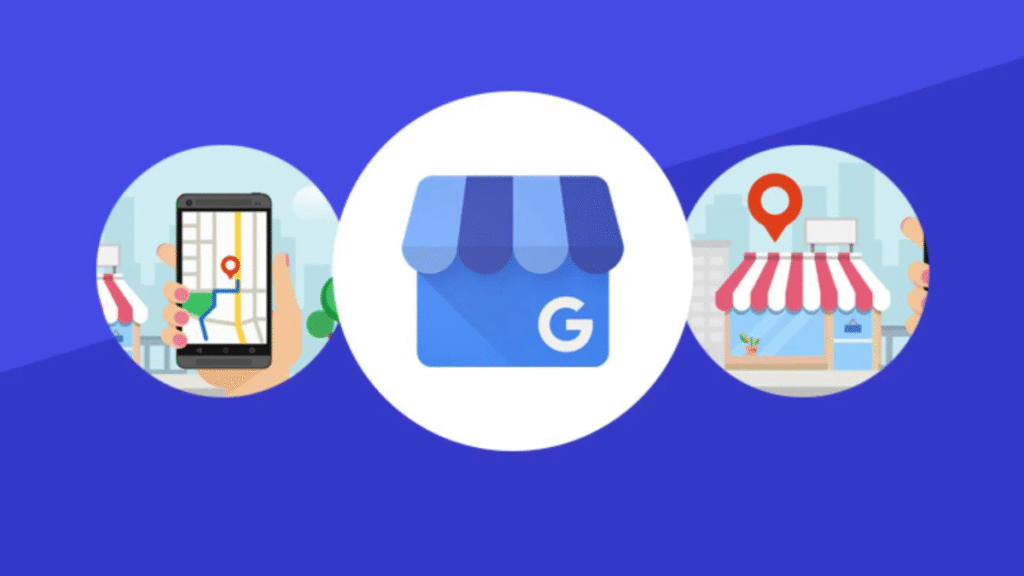In today’s digital age, appearing in local search results is crucial for small businesses, local service providers, and brick-and-mortar stores. Local SEO (Search Engine Optimization) helps businesses improve their online visibility in local searches, driving more foot traffic, phone calls, and leads. This beginner-friendly guide will walk you through the essentials of local SEO in 2025 and how to optimize your business for local search.
What Is Local SEO?
Local SEO is a branch of search engine optimization that focuses on optimizing your online presence to attract more business from relevant local searches. These searches happen on Google and other search engines and are often accompanied by keywords like “near me,” “in [city],” or specific services.
Key Goals of Local SEO:
- Appear in Google’s Local Pack (map results)
- Improve visibility for local intent keywords
- Drive more local leads and conversions
Why Local SEO Matters in 2025
1. Surge in Mobile and Voice Search
With 70%+ of users conducting mobile searches and the rise of voice assistants, local searches are more prominent than ever.
2. High Intent Traffic
People searching for local services often have immediate needs and higher chances of converting.
3. Level Playing Field
Local SEO allows smaller businesses to compete effectively with larger brands within a specific geographic area.
How Search Engines Rank Local Results
Google ranks local search results based on three core factors:
1. Relevance
How well your business listing matches the user’s search.
2. Distance
Proximity of the business to the searcher’s location or the location entered in the query.
3. Prominence
How well-known and reputable your business is based on reviews, citations, and backlinks.
Key Elements of Local SEO
1. Google Business Profile (GBP)

Formerly known as Google My Business, this is your most important asset for local SEO.
Optimization Tips:
- Claim and verify your listing
- Add accurate business details (name, address, phone, website, hours)
- Choose relevant categories
- Upload high-quality photos
- Regularly post updates
- Collect and respond to reviews
2. Local Keyword Optimization
How to Find Local Keywords:
- Use tools like Google Keyword Planner or Ubersuggest
- Include geographic terms (e.g., “best dentist in Austin”)
- Monitor search trends via Google Trends
Where to Use Keywords:
- Page titles
- Meta descriptions
- Headers (H1, H2)
- Website content
- Image alt text
3. NAP Consistency
NAP stands for Name, Address, and Phone number. Consistency across all platforms boosts trust and SEO rankings.
4. Online Directories and Citations
List your business on trusted directories like:
- Yelp
- Bing Places
- Apple Maps
- Yellow Pages
- Local chamber of commerce websites
Ensure all listings match your NAP exactly.
5. Customer Reviews
Positive online reviews help build your business’s credibility and improve local rankings.
Best Practices:
- Encourage satisfied customers to leave reviews
- Respond professionally to all reviews
- Use review management tools
6. Local Content Creation
Create blog posts, landing pages, and videos that speak to local issues, news, events, or services.
Examples:
- “Top 10 Places to Visit in [Your City]”
- “How Our Plumbing Services Helped a [City] Family Save Money”
7. Mobile Optimization
Most local searches happen on mobile. Ensure your website:
- Loads in under 2 seconds
- Has responsive design
- Features clickable phone numbers and CTAs
8. Backlink Building
Local backlinks improve authority. Get links from:
- Local blogs and media
- Community websites
- Event sponsorships
- School and university pages
Advanced Local SEO Tips for 2025
1. Voice Search Optimization
People speak differently than they type. Use long-tail, conversational keywords.
2. AI-Powered Chatbots
Improve user experience and customer support for local visitors.
3. Structured Data Markup (Schema)
Add local business schema to your site to help search engines understand your content.
4. Hyperlocal Targeting
Target neighborhoods or zip codes for even better precision.
5. Social Media Signals
Maintain active local social media profiles. Facebook Local and Instagram location tagging help drive discovery.
Tracking Local SEO Success
Use tools like:
- Google Analytics 4: Track user behavior on your site
- Google Search Console: Monitor keyword performance
- Google Business Profile Insights: View local search metrics
- BrightLocal/Moz Local: Manage citations and rankings
Key Metrics to Track:
- Website traffic from local searches
- Clicks-to-call from mobile
- Local keyword rankings
- Number and rating of reviews
- Google Business Profile views
Local SEO for Specific Industries
Retail
- Highlight local product availability
- Offer in-store pickup options
Restaurants
- Use menu schema markup
- Promote special offers and events
Service-Based Businesses
- Showcase case studies
- Use appointment booking integrations
Healthcare Providers

- Ensure listings on medical-specific directories (e.g., Healthgrades)
- Prioritize review generation
Also Read: The Ultimate Guide To Social Media Marketing In 2025
Conclusion
Local SEO is a game-changer for businesses wanting to attract customers in their geographic area. In 2025, with mobile and voice search dominating the local search landscape, it’s more important than ever to have a well-optimized online presence. From managing your Google Business Profile to creating localized content and building citations, the steps outlined in this guide will help you get found and grow your business.
FAQs
1. How long does it take to see results from local SEO?
Usually, you can start seeing improvements within 3 to 6 months, depending on competition and your starting point.
2. Is local SEO different from regular SEO?
Yes. While traditional SEO focuses on global or national rankings, local SEO targets searches within a specific geographic area.
3. Do I need a physical location to benefit from local SEO?
It helps, but service-based businesses that operate in a specific area can also benefit using a service area model.
4. Are online reviews really that important?
Absolutely. Reviews influence local search rankings and customer trust.
5. How much does local SEO cost?
It depends. DIY efforts can be free; hiring an agency typically ranges from $500 to $2,500/month depending on scope.

